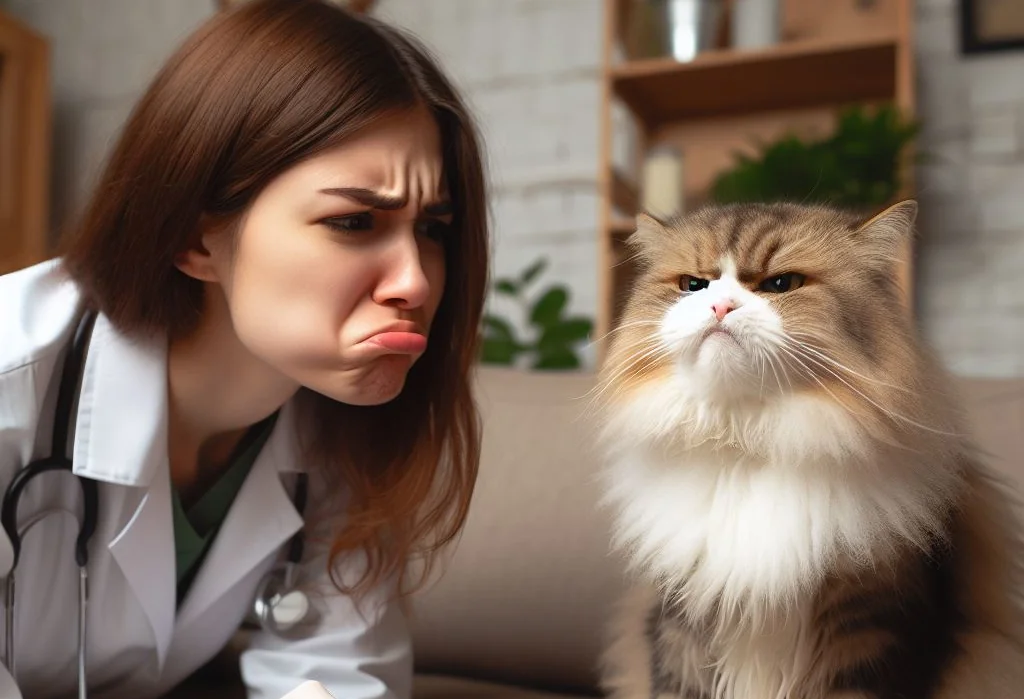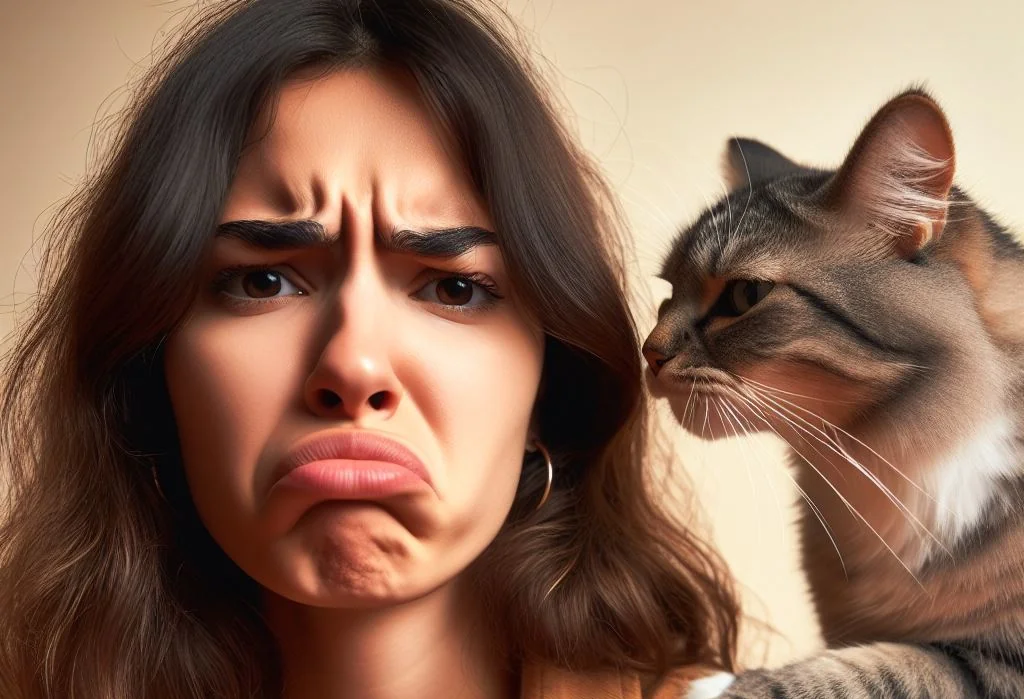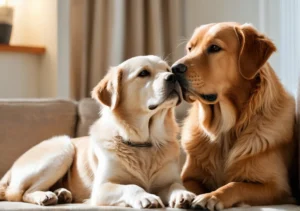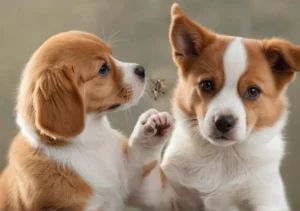When your fluffy companion turns into a grumpy huffer, it can leave you scratching your head in bemusement. “Why does my beloved feline friend resemble a miniature, disgruntled steam engine whenever I approach?” This blog post will offer you a beacon of understanding in the foggy world of cat communication.
By the end of this guide, readers will walk away with clarity on why their cat might be huffing at them and feel equipped to strengthen the bond with their whiskered companion.
Quick Takeaways:
- Cat huffing is a communication cue expressing irritation, fear, or overstimulation, so observe and respect their space.
- Persistent or excessive huffing can signal underlying health issues; monitor for other changes like appetite or behavior.
- Engage cats with interactive play and regularly consult your vet to maintain their health and alleviate stress.
What Is Cat Huffing and Why Does It Happen?
Cat huffing —not your everyday feline behavior, yet it’s more common than you might think. Essentially, when a cat huffs, they produce a sharp, short burst of air through their nose and mouth, almost as if they’re briefly snorting. It’s a peculiar sound, distinct from their usual purring or meowing.
But why does it happen? At its core, huffing is a form of communication. Cats are masters of subtlety and use a variety of vocalizations to express a range of emotions and reactions. Huffing, in particular, can be linked to several causes:
- Irritation or Annoyance: Just like us, cats have their limits. Overzealous petting or unwelcome interactions can lead to huffing as a polite, “back off” message.
- Fear or Discomfort: Something in their environment might be stressing them out, be it a sudden noise or an unfamiliar presence.
- Overstimulation: There’s a fine line between pleasurable petting and too much of a good thing. Cross it, and your cat might huff to signal they’ve had enough.
Understanding the context is key to deciphering what your cat is trying to tell you. Paying attention to what was happening right before the huff can provide valuable clues.
Can a Cat’s Huffing Be a Sign of Discontent?
Absolutely, huffing is amongst the myriad of ways cats express their displeasure or discomfort. It’s their version of saying, “I’m not okay with this.” Recognizing these signs can significantly improve the understanding and bond between you and your feline friend. Here’s what to watch for:
- Body Language: A huffing cat might also exhibit other signs of discontent, like flattened ears, a tucked tail, or an arched back. These are all red flags.
- Frequent Huffing: If your cat is huffing more than usual, take a moment to assess their environment. Something might be consistently bothering them.
- Avoidance: After huffing, does your cat leave the room or keep its distance from you? This is a clear indicator they’re not happy with the current situation.
Recognizing these signals as indicators of discontent is the first step towards creating a happier, stress-free environment for your cat.

How Do You Respond to Your Cat’s Huffing?
Navigating your cat’s huffing can be as simple as listening and respecting their needs. Here’s how you can respond in a way that says, “I hear you,” to your fluffy companion:
- Give Them Space: If your cat huffs during a cuddle session, it’s likely they’re feeling overstimulated. Pause and let them decide if they want to continue the interaction.
- Observe and Adjust: Identify what’s triggering the huffing. If it’s a specific type of handling or a noisy environment, try to minimize these stressors.
- Pheromone Diffusers: For anxious cats, consider using a pheromone diffuser, like Feliway, to create a calming atmosphere. These mimic the natural pheromones cats produce to feel safe and secure.
And here’s the kicker, something most folks overlook: Engage in interactive play. Sometimes, what a huffing cat needs is a way to release pent-up energy or stress. A simple laser pointer session or a romp with a feather toy can work wonders in redirecting their focus and improving their mood.
At times, despite your best efforts, huffing might persist or be accompanied by other worrisome signs. This is your cue to consult with a vet or an animal behaviorist. Their expertise can help rule out any underlying health issues or provide strategies for improving your cat’s behavior and well-being.
Remember, the key to a happy coexistence with your feline friend lies in understanding and mutual respect. By tuning into their signals, like huffing, and responding appropriately, you’re laying the foundation for a stronger, more harmonious relationship.
Could Health Issues Cause Your Cat to Huff?
As a cat owner, deciphering your furry friend’s plethora of sounds is part of the daily routine. While most huffs, puffs, and meows easily translate into “Feed me now” or “Scratch right here, please,” sometimes, a huff might not be as straightforward as it seems. In particular, a cat huffing at you could unexpectedly be a signpost to underlying health issues. So, let’s unravel this mystery together, keeping an eye out for the clues that might prompt a trip to the veterinarian.
First off, it’s crucial to understand that cats are masters of disguise—especially when it comes to concealing discomfort or sickness. A noticeable change in behavior, such as huffing, might indeed be your first clue that something’s up. But, of course, not every huff signals a health problem. Sometimes, a huff is just a huff. However, coupled with other symptoms, it could be your cue to dig a bit deeper.
Signs That Should Have You on Alert
While occasional huffing might not raise eyebrows, certain accompanying signs should. Here’s a quick checklist:
- Excessive Huffing or Panting: Unlike dogs, cats aren’t prone to panting. If your cat is huffing more than usual or panting, it could indicate respiratory distress or overheating.
- Change in Appetite or Weight: A sudden disinterest in food or an unexpected weight loss or gain can signal serious health issues, from dental problems to diabetes.
- Altered Behavior: If your once cuddly furball is now quick to huff or hide, consider it a red flag. Pain or discomfort can cause significant behavior changes.
- Lethargy: A noticeable decrease in energy levels or an increase in nap times could be cause for concern.
- Coughing or Wheezing: These symptoms, combined with huffing, might suggest respiratory problems.
Why Regular Check-Ups Matter
Now, I know what you might be thinking: “But my cat seems perfectly healthy!” And that’s precisely why regular veterinary check-ups are golden. These visits can catch issues you might overlook—ensuring your cat stays in tip-top shape. Plus, establishing a health baseline makes it easier to spot when something’s amiss.
Unique Insights for Your Feline Friend
Whisker Fatigue:
One unique insight often overlooked is whisker fatigue—a condition possibly linked to your cat’s huffing. While not a medical emergency, cats with overly stimulated, sensitive whiskers may display signs of stress or discomfort, such as huffing, when navigating through tight spaces or feeding from deep bowls. Switching to shallow dishes and ensuring their environment is whisker-friendly can alleviate stress, reducing those huffy exchanges.
The Final Verdict
At the end of the day, your cat’s health and well-being are paramount. While a huff here and there might not always spell trouble, staying attuned to your cat’s normal behaviors—and noting any deviations—is key. When in doubt, it’s always best to consult with your veterinarian. They can offer tailored advice and peace of mind, ensuring that your purring companion remains healthy and happy. Plus, catching potential issues early can prevent more serious complications down the road. So, keep those vet visits regular, and don’t hesitate to reach out if something seems off—especially if that something is as subtle as a huff.
Remember, every cat is unique. What might be a mere quirk for one could be a warning sign for another. By keeping a keen eye on your feline friend and maintaining open lines of communication with your vet, you can ensure your cat enjoys a long, healthy, and huff-free life.
Alex, a passionate animal lover, has experience in training and understanding animal behavior. As a proud pet parent to two dogs and three cats, he founded AnimalReport.net to share insights from animal experts and expand his knowledge of the animal kingdom.





